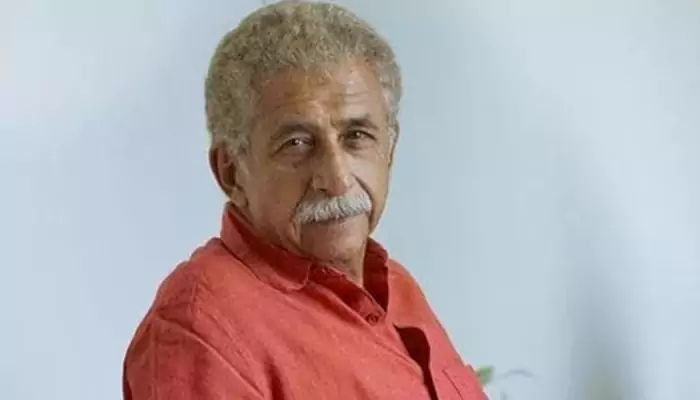
Naseeruddin Shah, for years, has been synonymous with the wave of realistic cinema that challenged mainstream Bollywood tropes.
Naseeruddin Shah is one actor who has a career spanning parallel cinema, commercial Bollywood, theatre, and international projects. And to say the least, he is one of the most respected actors in India. On the occasion of his 75th birthday on July 20, let’s reflect on his career and how he has portrayed characters that explore social realism or absurd comedy, bringing versatility to the screen.
Naseeruddin Shah got everyone’s attention in the 1970s, a golden era for India’s parallel cinema movement. He, along with contemporaries like Shabana Azmi, Om Puri, and Smita Patil, amped up the wave of realism in cinema and challenged the tropes of mainstream Bollywood.
In Aakrosh (1980), helmed by Govind Nihalani, he played a public prosecutor dealing with a horrifying case of injustice in the system. His performance, which showed anguish and helplessness, saw how he had a perfect approach to the craft.
Coming to Sparsh (1980, he played a blind principal at a school for visually impaired students with sheer sensitivity and restraint. He did not delve into the pity-laden portrayals of disability and offered them dignity and complexity.
In Masoom (1983), directed by Shekhar Kapur, he played a father confronted by a child from an extramarital affair, and he beautifully expressed internal conflict, which further cemented his status as an actor of depth.

While we all might relate Shah to his intense and brooding roles, Naseeruddin Shah’s comic timing is just as perfect, and his intention to play such roles is mostly to underplay and let humor arise from the character and situation.
In Jaane Bhi Do Yaaro (1983), the black comedy directed by Kundan Shah, he played one of two photographers who stumble upon a murder conspiracy. His impeccable comic sense did help the film achieve cult status.
In Iqbal (2005), Shah played an alcoholic ex-cricketer mentoring a deaf and mute boy, and he beautifully balanced humor with emotional nuance.
As for The Dirty Picture (2011), he played a narcissistic film star, who could poke fun at himself and the industry with ease.
To say the least, he has been a lifelong stage performer, and even co-founded Motley Productions in 1977 along with Tom Alter and Benjamin Gilani. His stage presence is as loved by his fans as his screen presence, and his contributions to theatre have inspired several actors.
Beyond Bollywood, he starred in Hollywood film The League of Extraordinary Gentlemen (2003), where he played Captain Nemo with stoic dignity. He has also been part of Pakistani film Khuda Kay Liye (2007), playing a liberal Islamic scholar who challenges fundamentalism.
As he celebrates another birthday, let’s not forget that he remains as relevant as ever, and his journey is a testament of the evolution of Indian cinema itself – one brilliant performance at a time.